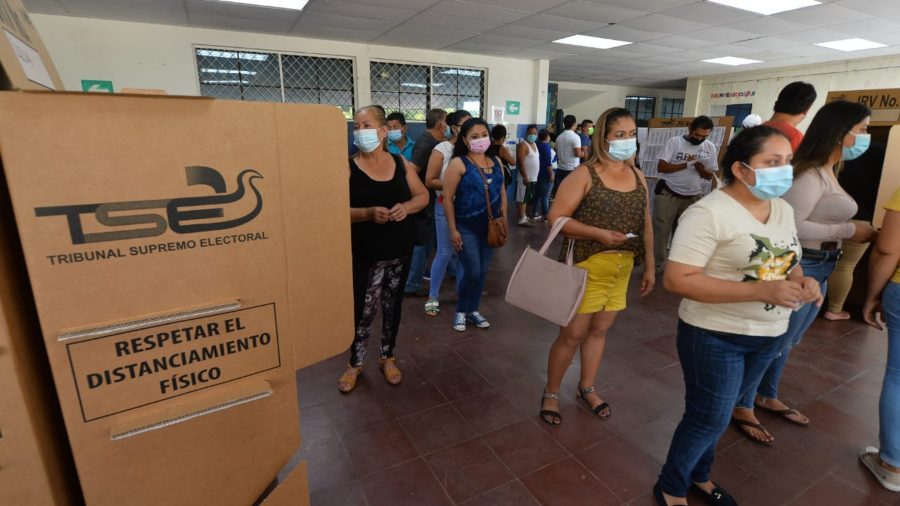
In addition, the Supreme Electoral Court (TSE) carried out the zeroing of the system for processing preliminary election results.
The 1,595 polling stations began closing at 5 p.m. to make way for the counting of votes in the municipal and legislative elections. Shortly before, the Supreme Electoral Court (TSE) informed the Departmental Electoral Boards (JED) and Municipal Electoral Boards (JEM) that with 10 minutes to go before the close of voting they had to proceed with the entry of people who were doing row out of these.
In addition, the Supreme Electoral Court (TSE) performed the zeroing of the results processing system preliminary elections. This gives certainty that the system will record results, based on information from the three acts generated in each of the 8,451 JRV.
However, at the beginning the day was marked by some delays. More than 38 polling stations opened their doors on Sunday more than 40 minutes late, according to Attorney General Raúl Melara.
During the day there were some accidents, such as the one starring Osiris Luna, director general of Penitentiary Centers and Deputy Minister of Justice, who was signaled to enter the polling station by force along with other members of New Ideas and to intervene in the installation of the Voting Board without being accredited for it.
You might read: Director of Penitentiary Centers forcibly enters polling station
The incident occurred in Guaymango, Ahuachapán. A video posted on social media shows a man, who appears to be the official, forcibly opening the school door. Luna also arrived at the Francisco Gavidia School Center in El Refugi, Ahuachapán, to intercede for representatives of the New Ideas party to join the JRVs without having the respective accreditation. This was questioned by the president of the Municipal Electoral Board (JEM), Aura Lissethe Herrera.

Photo: René Quintanilla.
No major altercations took place at polling stations during election day. The election event was monitored by about 40,000 security personnel including police and military, as well as international observers.
As part of the international observers was Otto Madrid, of the independent Center for Exchange and Solidarity (CIS), who said that the vote at the National Institute Albert Camus, of the Central American Colony of the capital, opened with a 30-minute delay but saw nothing to suggest fraud, a fact that the executive without any evidence has insisted on since the start of the election campaign.
“It’s been a quiet vote. It strikes me that so many older adults have arrived, even in wheelchairs,” Madrid commented.
You could read: Delays and congestion in polling stations, the most relevant election day in El Salvador
The OAS observer mission formulated an “energetic call” not to spread false information on social media and the media.

This is how the facilities of the Arturo Alberg School Center in San Salvador looked like on the morning of February 28th. Photo: Óscar Iraheta
The Jesuit University José Simeón Cañas (UCA) warned in an editorial that the elections are being held “in an atmosphere of tension and confrontation that could lead to violence and call into question the results.”
Also: The United States asks not to claim that there is fraud where it does not exist
Bukele has ignored a ban on broadcasting political messages three days before the vote, and aired ads on television calling for a vote for his allies and criticizing his opponents. In addition to the press conference given in the afternoon where he attacked the TSE and discredited the work of the institution, and he also directed the vote towards his party.
YOU MAY BE INTERESTED IN: Nayib Bukele directs the vote towards his party during electoral silence already a few hours before the polls close

Crowds of people in the corridors of the National Institute of Commerce (Inco) were delayed by an hour in opening the polling station. Distancing was not respected. Photo EDH / Óscar Iraheta